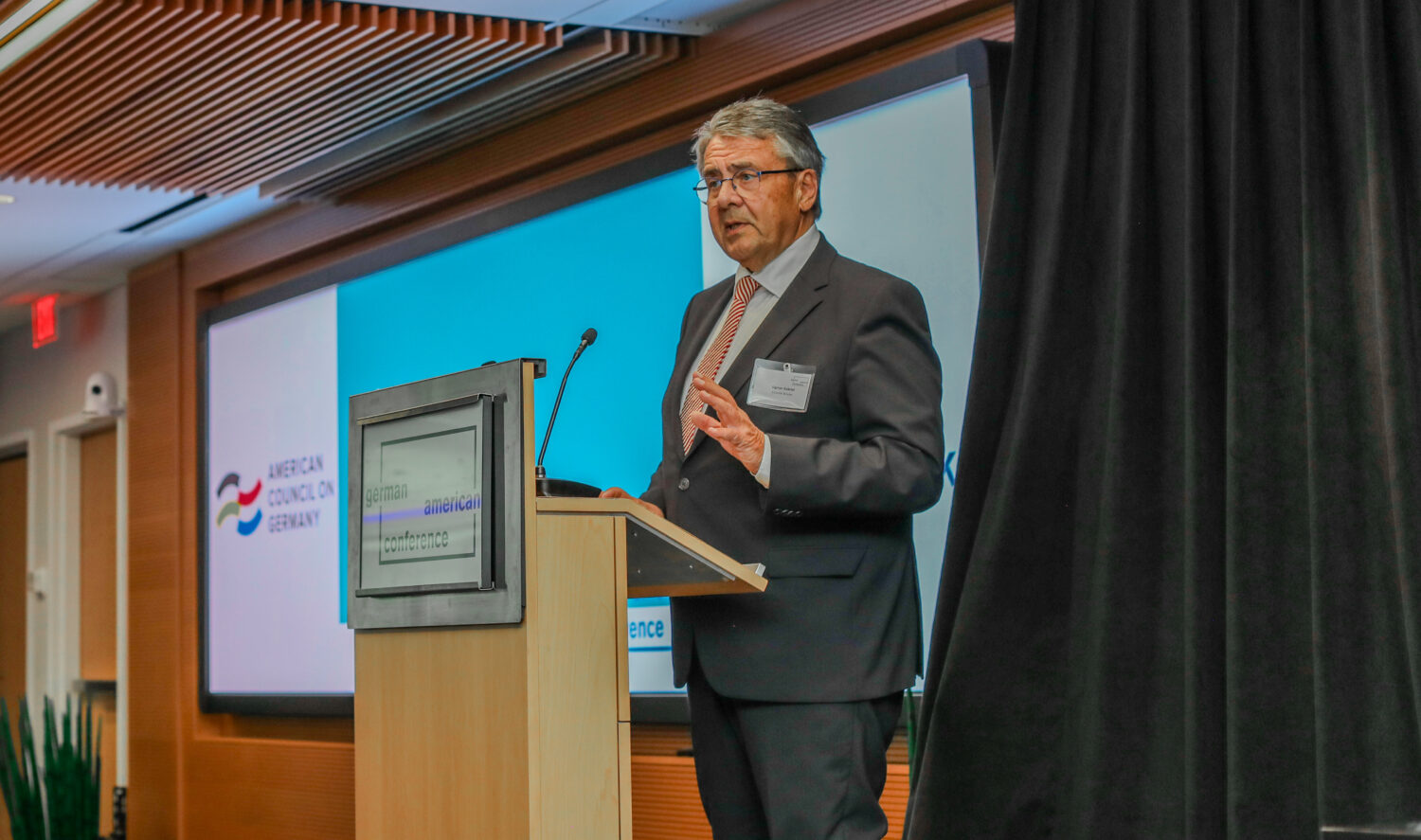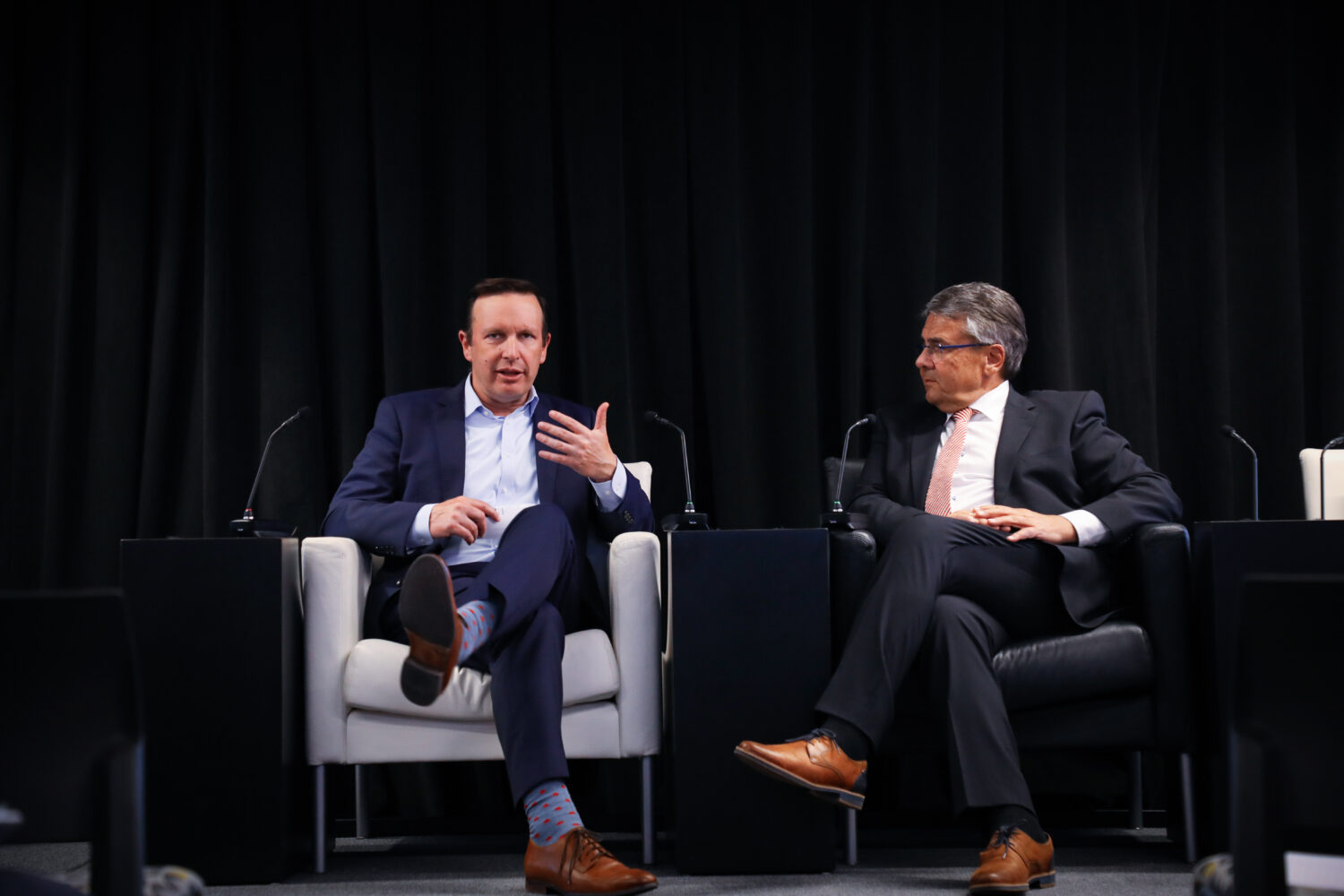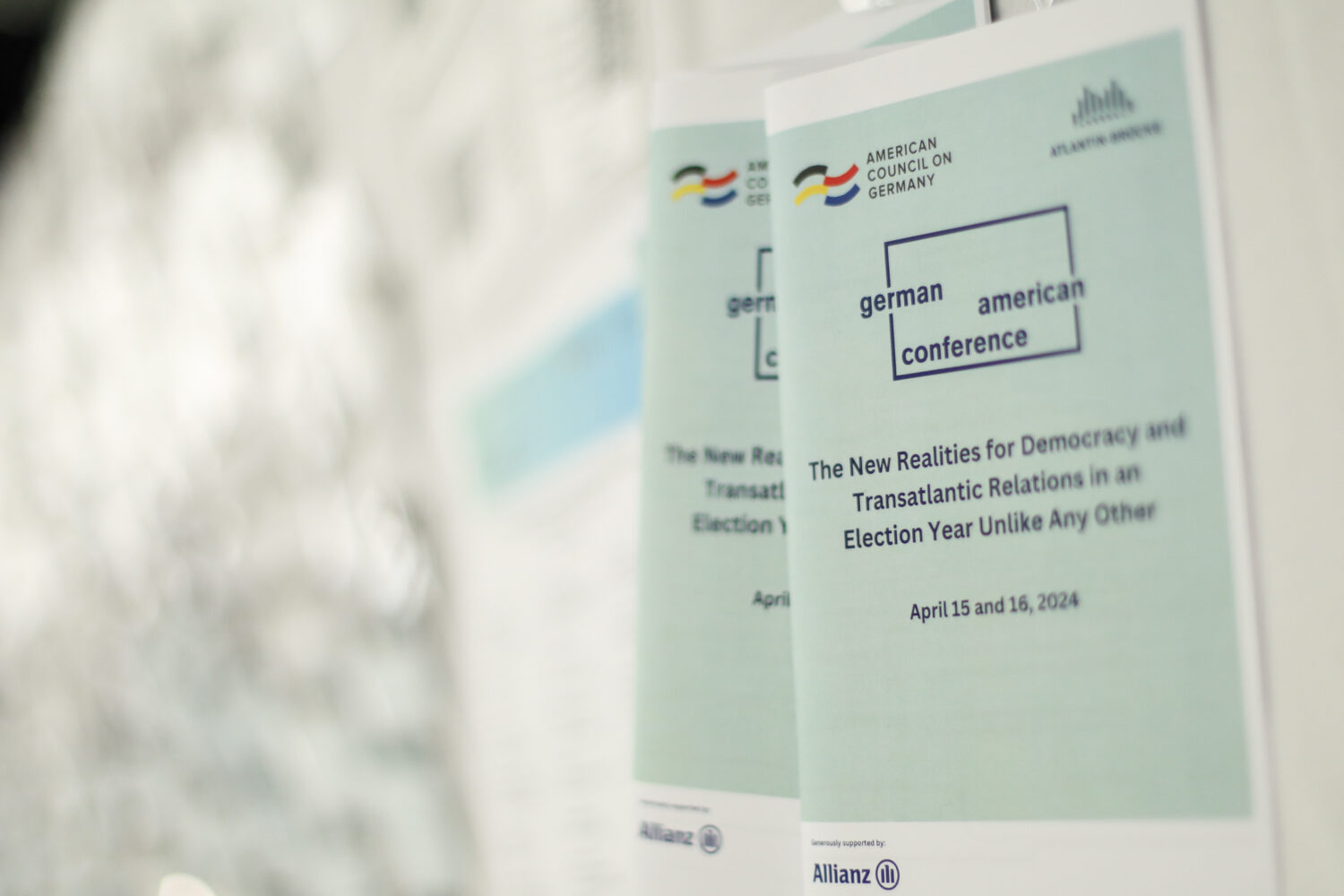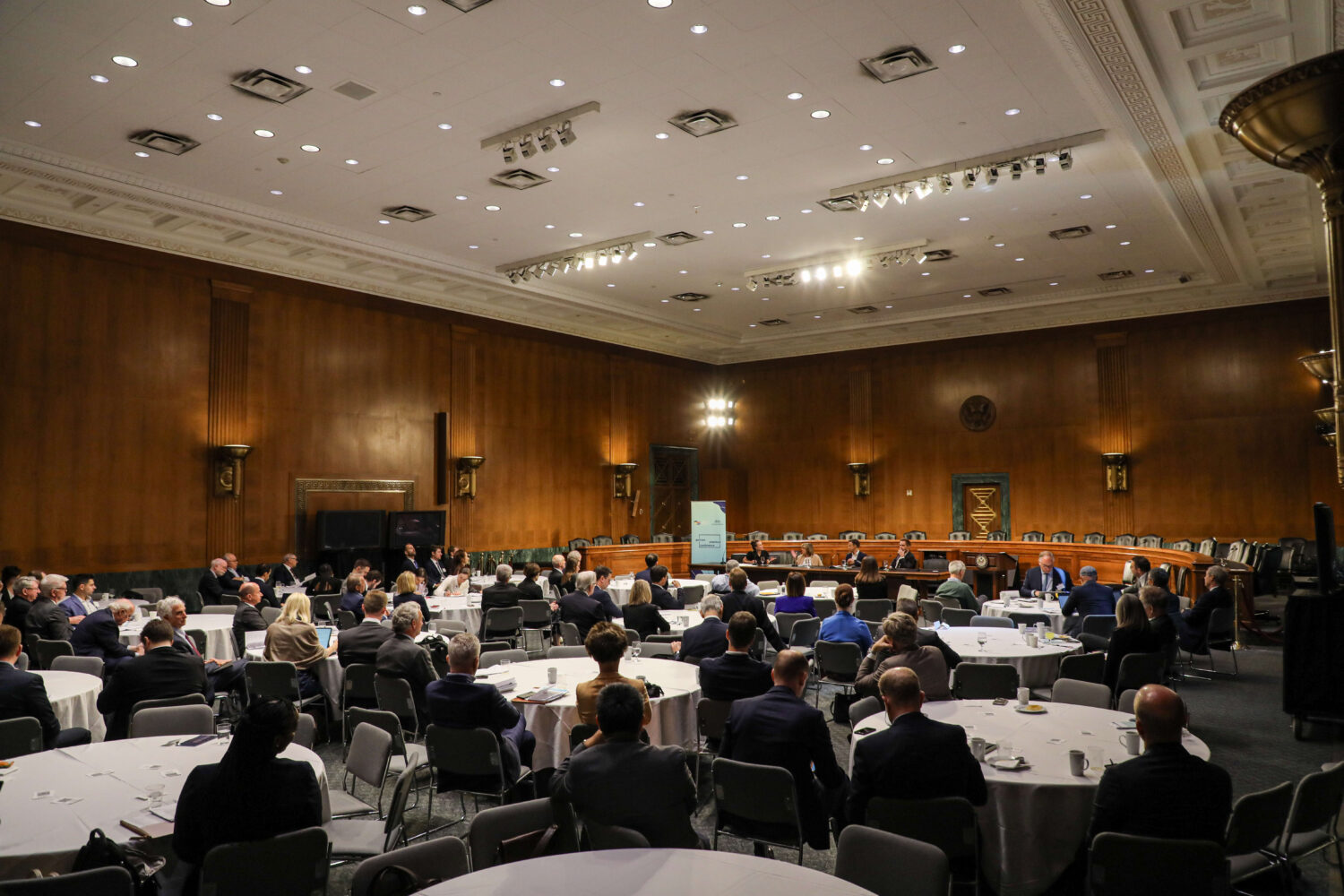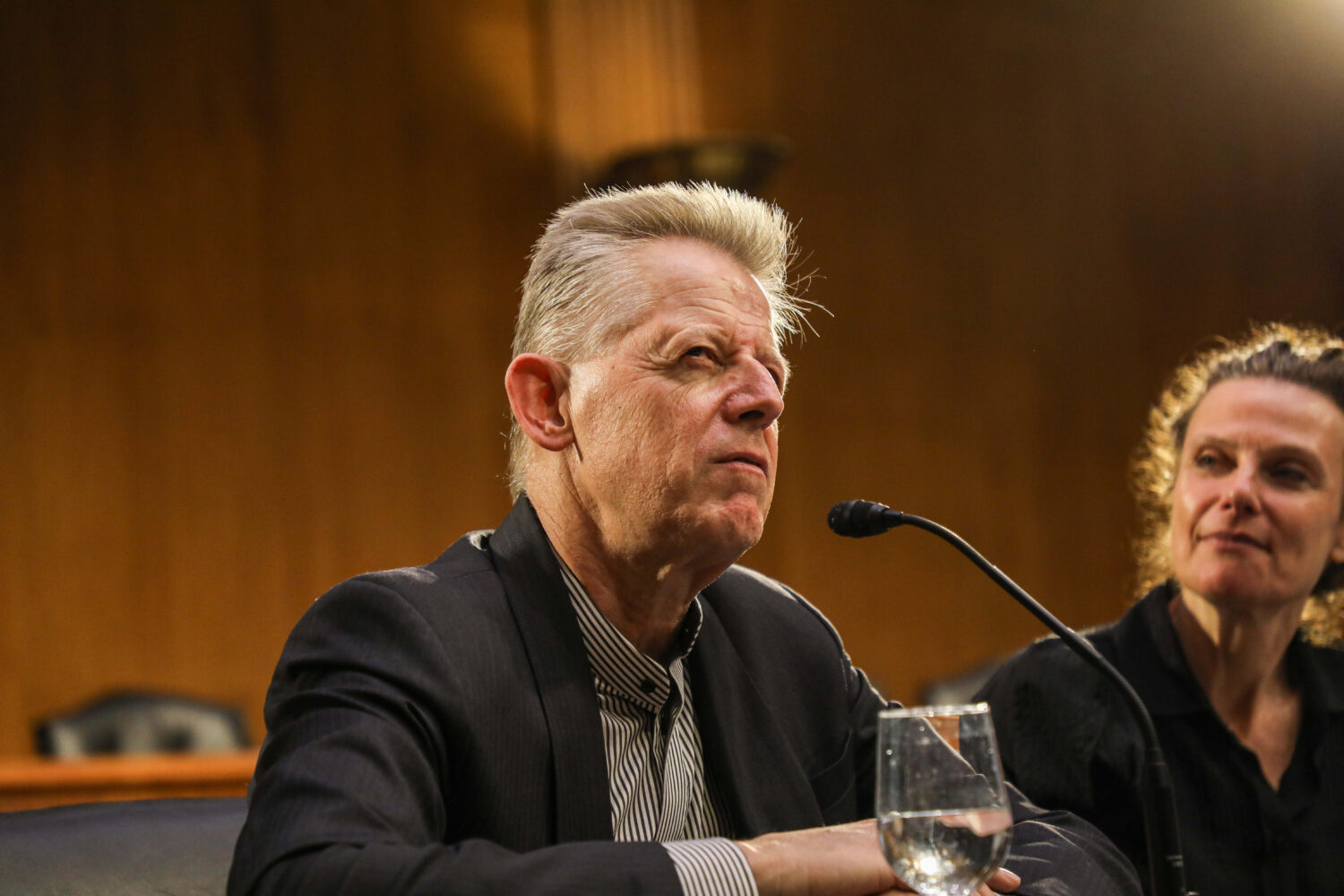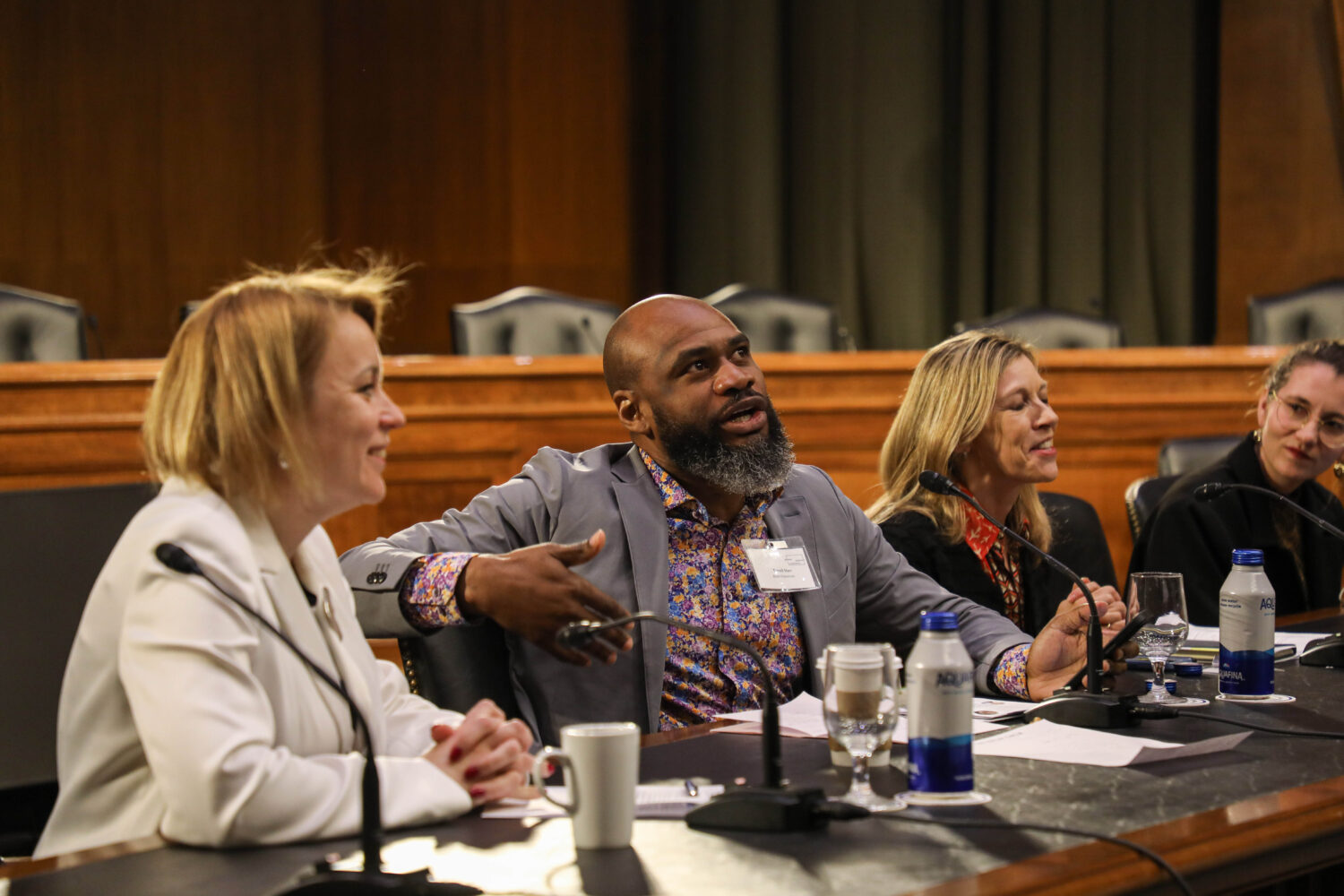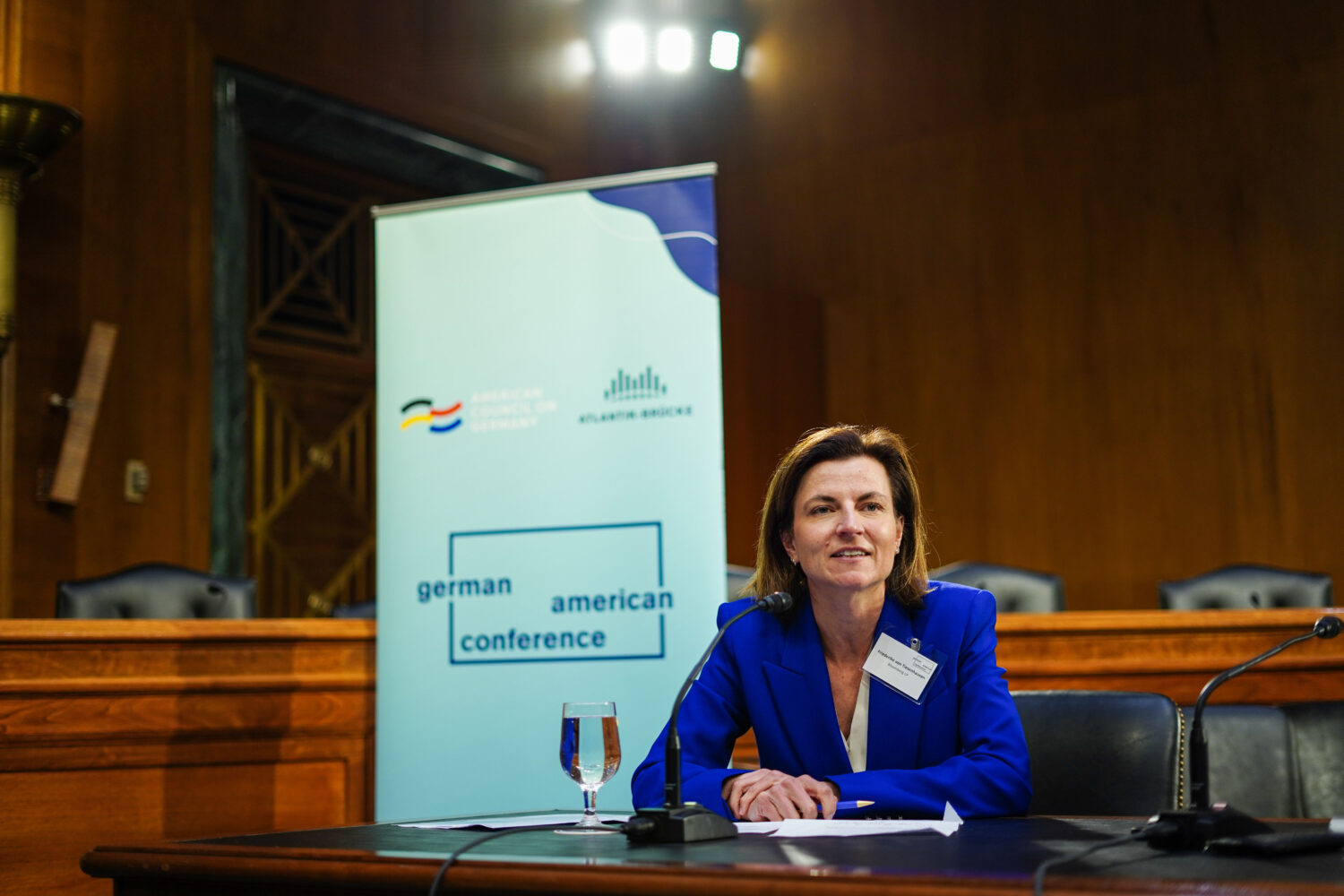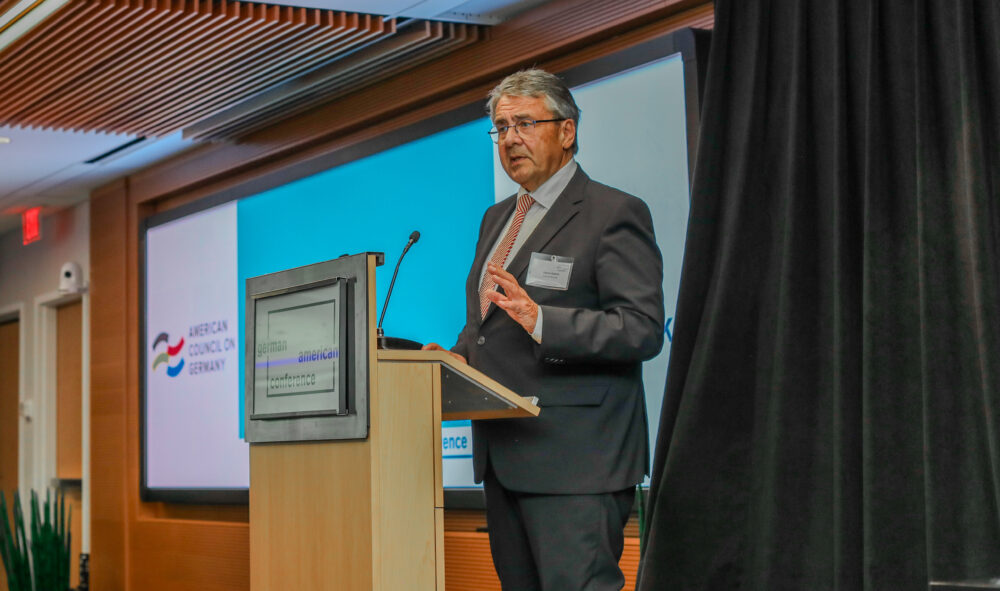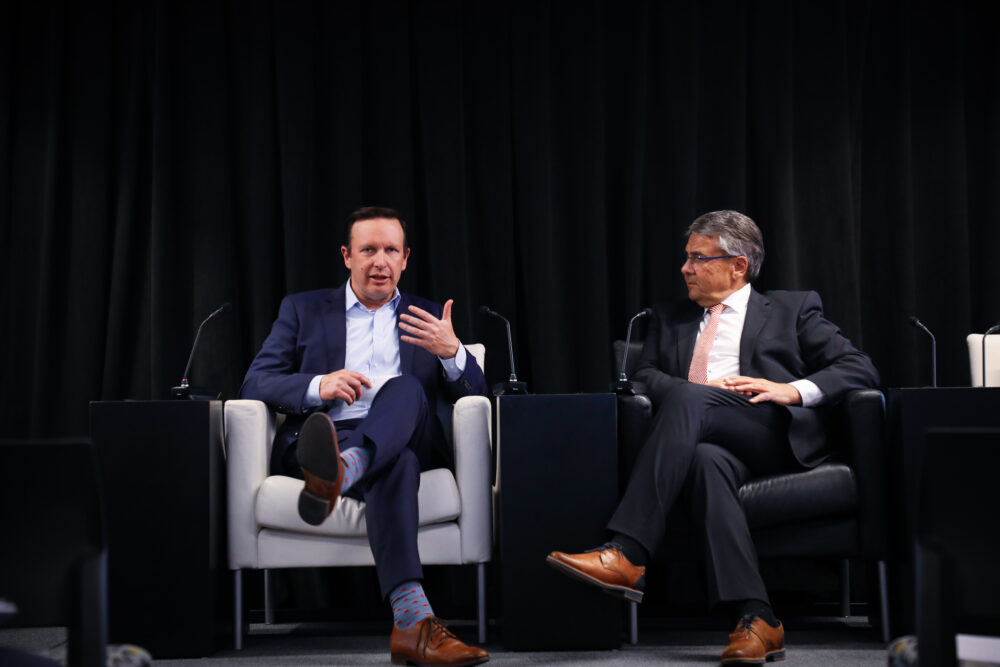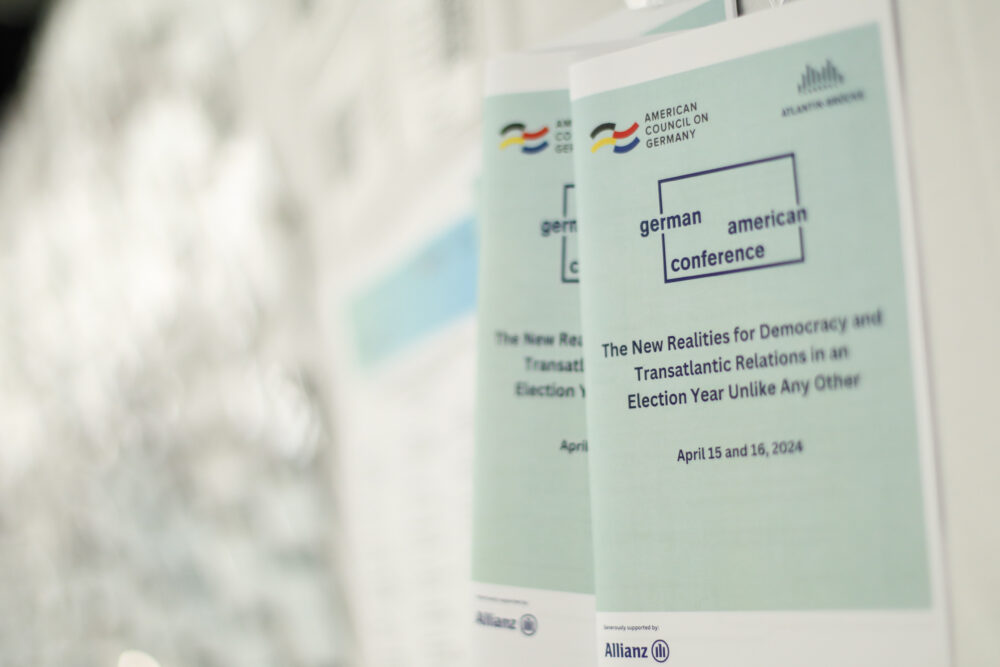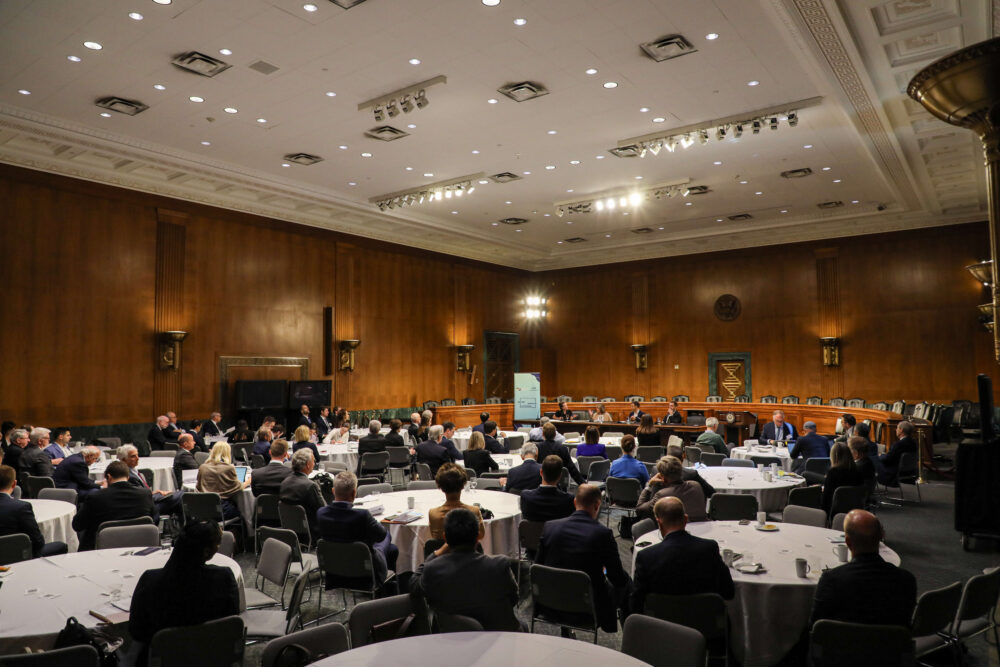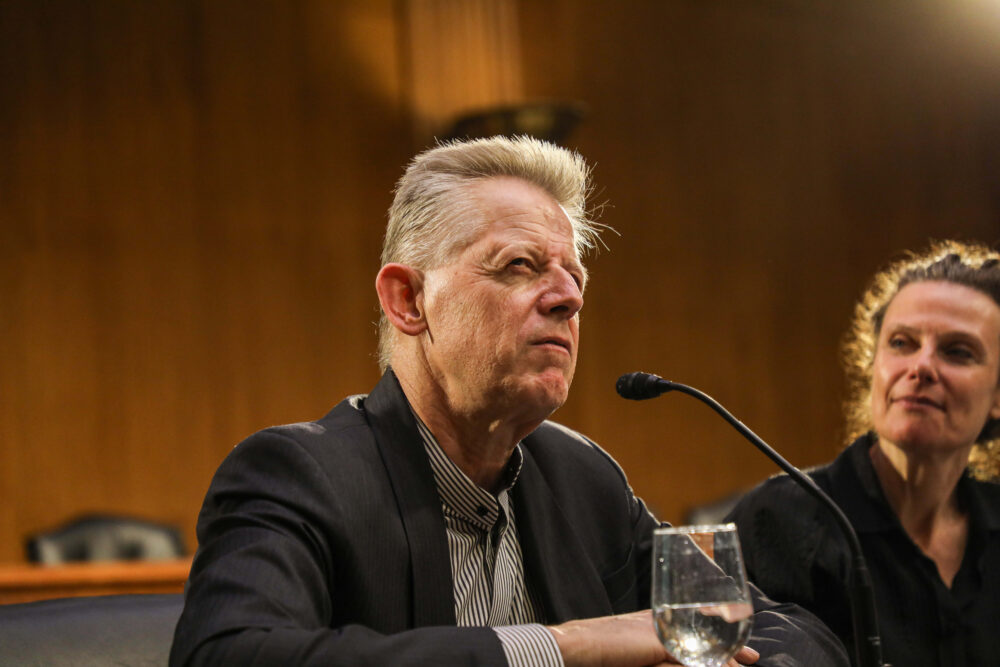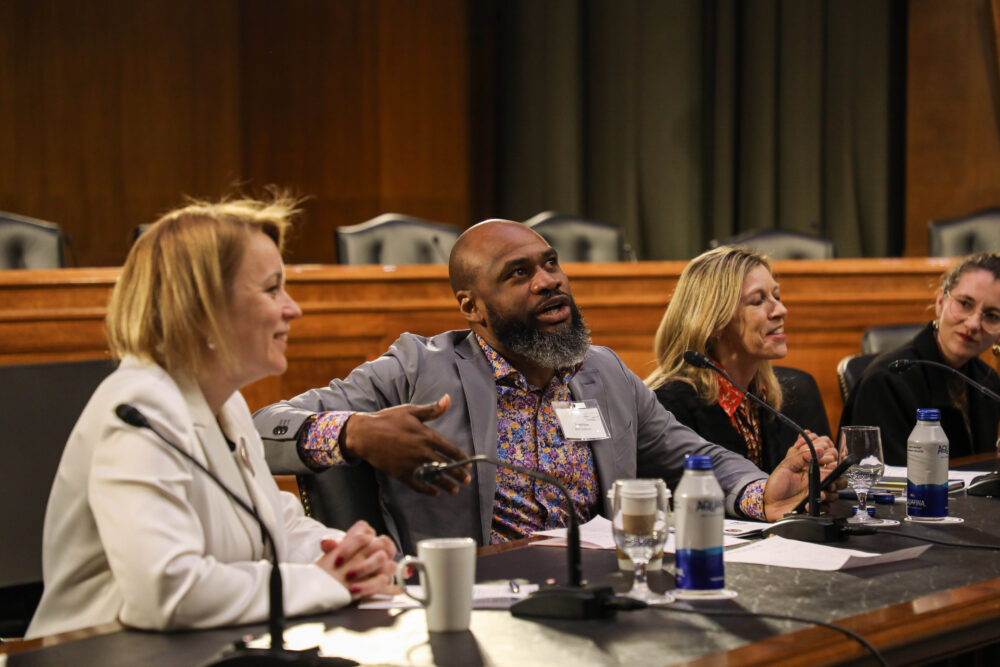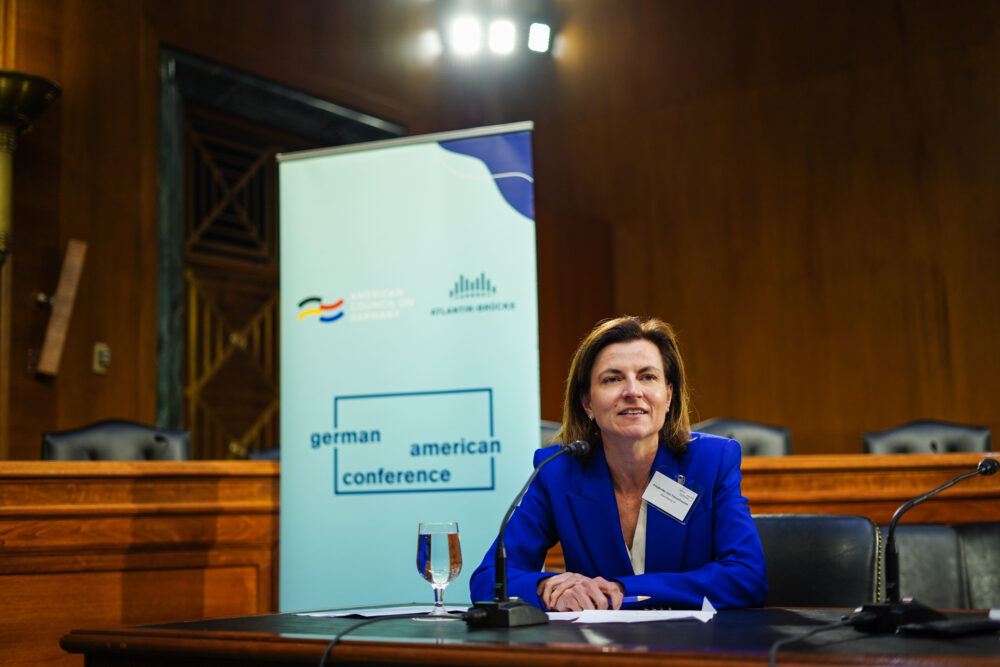The New Realities of Democracy
The German-American Conference 2024, organized by the Atlantik-Brücke and the American Council on Germany (ACG), took place in Washington, D.C. in April – the best time of the year in the American capital in terms of weather, which the locals didn’t get tired of repeating.
After opening remarks by Sigmar Gabriel, Chairman of Atlantik-Brücke, Senator Christopher Murphy (D-CT) delivered a speech and later engaged in a discussion with Mr. Gabriel. They discussed transatlantic friendship and the role of China. The U.S. is investing very fast in technologies to stop climate change, Murphy said. „For our friends in Germany, the IRA probably came too fast and took them by surprise.“
After the presentation of the Transatlantic Trust Survey (provided by Edelman and Allianz), which showed that mutual trust between Germany and America is declining (click here to read the survey) , Steven Sokol, CEO of the American Council on Germany, moderated a panel with Ines Pohl, Deutsche Welle, Majid Sattar, FAZ, and Allison Meakem, Foreign Policy, about the world in times of global elections. Ms. Pohl talked about her experience as a reporter and how she is appalled by the number of people who believe in fake news. „Lies in the media are the biggest threat to democracy in the U.S.,“ she said.
The panel also agreed that foreign policy is a more important issue in this year’s election. „Economic factors are not decisive in the next election,“ said Mr. Sattar. The U.S. economy is doing quite well, and by complaining about the economy, voters are just hiding their real motives for voting for Trump, the speakers stressed. These motives are anger, rage, and racism. “In this year’s election the Muslim population could be decisive,” Ms. Pohl added.
On day two, after a warm welcome from John B. Emerson, former U.S. Ambassador to Germany and now Chairman of the American Council on Germany, Julia Ioffe, Puck Media, Matt Gorman, Targeted Victory, and Jamieson Greer, King & Spalding, discussed with ZEIT-Reporter Kerstin Kohlenberg the political polarization in the US and their influence on the elections.
The panel with Phyllis Berry, National Intelligence Officer for Europe, Christian Gaebel, German Farmers‘ Association, and Julian Müller-Kaler, Stimson Center, and Dr. Andrew Moravcsik, Princeton University, discussed what’s to watch in this year’s European elections and the state elections in three Eastern German states. The vivid discussion was moderated by Claudia Kade, Die Welt.
Andreas Dombret, Oliver Wyman, Claudia Donzelmann, Allianz SE, Dr. Christof Ehrhart, Robert Bosch GmbH, and Dr. Inu Manak, Council on Foreign Relations, discussed global economic (in)Stability. The panel was moderated by Friederike von Tiesenhausen, Bloomberg LP.
Another topic at the German-American Conference was the divide over the Middle East. Julia Friedlander, CEO of Atlantik-Brücke, discussed with Bradley Bowman, Foundation for Defense of Democracies, Norbert Röttgen, Member of the Bundestag (CDU), and Charles Kupchan, Council on Foreign Relations, the societal divide on support for Israel and the Gaza conflict.
Public Perceptions of the war in Ukraine were discussed with Evelyn Farkas, McCain Institute, Jovita Neliupšienė, EU Ambassador to the US, Deborah Düring, Member of the Bundestag (Green Party) and Terrell Jermaine Starr, founder and host of Black Diplomats.
We’re already looking forward to next year’s German-American Conference. See you there!

